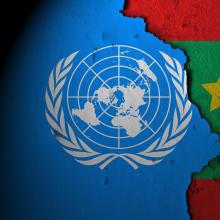December 24, 2019

MENA Rights Group has submitted a general allegation to the UN Working Group on Enforced or Involuntary Disappearances (WGEID) highlighting obstacles to the implementation of the 1992 Declaration on the Protection of all Persons from Enforced Disappearance (Declaration) in Saudi Arabia.
Recent years have seen a sharp rise in the number of cases of enforced disappearance, indicating this practice has become widespread in Saudi Arabia. While some individuals are disappeared for short periods of time after their arrest, some remain disappeared for several months, or years, during which their family are denied any information on their fate and whereabouts. Moreover, peaceful demonstrations and expressions of free speech are met with systematic arrests and detentions and numerous human rights defenders, journalists and critics who have publicly criticised government policies, have been subjected to enforced disappearance as a form of reprisals and a mean to silence them.
Where there are concerns regarding the practice of enforced disappearance in a given country, a general allegation can be submitted to the WGEID, which is then transmitted to the state with the invitation to comment. In its submission to the UN group of experts on December 20, 2019, MENA Rights Group alleged that (i) existing legislation does not offer sufficient protection against enforced disappearance, (ii) the unchecked and increased concentration of power with the royal authority has contributed to a culture of impunity, and (iii) rules and practices related to investigation embolden the commission of disappearances.
A systematic practice
Although the extensiveness of enforced disappearance in Saudi Arabia is masked by a culture of secrecy, information accessible indicates a clear trend in relation to both short and long-term enforced disappearance.
The allegation identifies how arrests carried out by the intelligence services follow a specific pattern; victims are often arrested by officers dressed in civilian clothes who do not present an arrest warrant nor explain the reasons for the arrest. The victim is then taken to an unknown location where they are forcibly disappeared for anywhere between a few days and several years. Cases suggest that, in many instances, the crime of enforced disappearance is both accepted and systematically perpetrated in Saudi Arabia in order to obtain coerced confessions, which are subsequently used as the sole evidence to charge and later sentence individuals. Such practices are enabled by a culture of impunity, undermining the implementation of the Declaration.
Cases documented also indicate that, in many instances, the practice of holding individuals incommunicado in Saudi Arabia is tantamount to enforced disappearance as it is characterised by a lack of official information as to the whereabouts of the individual, ill-treatment and torture (often as a means of interrogation), and no access to legal representation. The general allegation also emphasised the failiure of the online prisoner database (Nafetha) to satisfy article 10 of the Declaration.
MENA Rights Group further alleged that the lack of available remedies for enforced disappearance, and the fear of reprisal, undermine the implementation of the Declaration.
Institutions and legislation
Saudi Arabia’s political system is an absolute monarchy and theocracy, with power having become increasingly centralised in recent years as a result of the restructuring of of Saudi Arabia’s prosecution service and security apparatus.
The general allegation sets out how there are limited legal safeguards to prevent enforced disappearances in domestic law and, contrary to article 4 of the Declaration, there is no specific criminalisation of enforced disappearance. Furthermore, the concerns of the Committee against Torture that existing legislation was both inadequate and not respected, as set out in in their 2016 Concluding Observations, were also noted.
Moreover, counter-terrorism legislation has been widely used in recent years to criminalises a wide spectrum of acts, including acts which fall under the rights to freedom of opinion, expression, peaceful assembly and association, as well as freedom of thought, conscience and religion. The allegation also notes that the 2017 counter-terrorism law grants large discretionary powers to the Presidency of State Security and the Public Prosecution, enabling the incommunicado detention of individuals for up to 90 days (i.e. without contact with the outside world). The law also grants the Specialised Criminal Court the power to extend the period of custody indefinitely, including incommunicado detention, putting individuals at risk of disappearance.
The lack of legal certainty in Saudi Arabia was also highlighted in the allegation, which contributes to a climate of fear and self-censorship. Furthermore, it was emphasised that by not ratifying several international core human rights conventions, including the International Covenant on Civil and Political Rights (ICCPR) and International Convention for the Protection of All Persons from Enforced Disappearance (ICPPED), there remain limited legal grounds by which the crime of enforced disappearance can be investigated and the perpetrators prosecuted in Saudi Arabia.
Recommendations
In the context of the general allegation, MENA Rights Group recommended that Saudi Arabia prevent the perpetration of enforced disappearance by (i) introducing national legislation which prohibits enforced disappearance, (ii) adopting all measures necessary to ensure that no person deprived of their liberty is held in secret detention, guaranteeing all fundamental legal safeguards, (iii) repealing all legal provisions that allow for individuals to be placed in incommunicado detention for prolonged periods of time, (iv) ensuring the right to habeas corpus as well as access to legal counsel, (v) restructuring national institutions to ensure an independent court and judiciary, and (vi) introducing legislation which protects witnesses and other persons making enquiries in relation to, and participating in investigations into, enforced disappearances. It was also recommended that Saudi Arabia ratify the ICCPR, the ICPPED and the Rome Statute.






